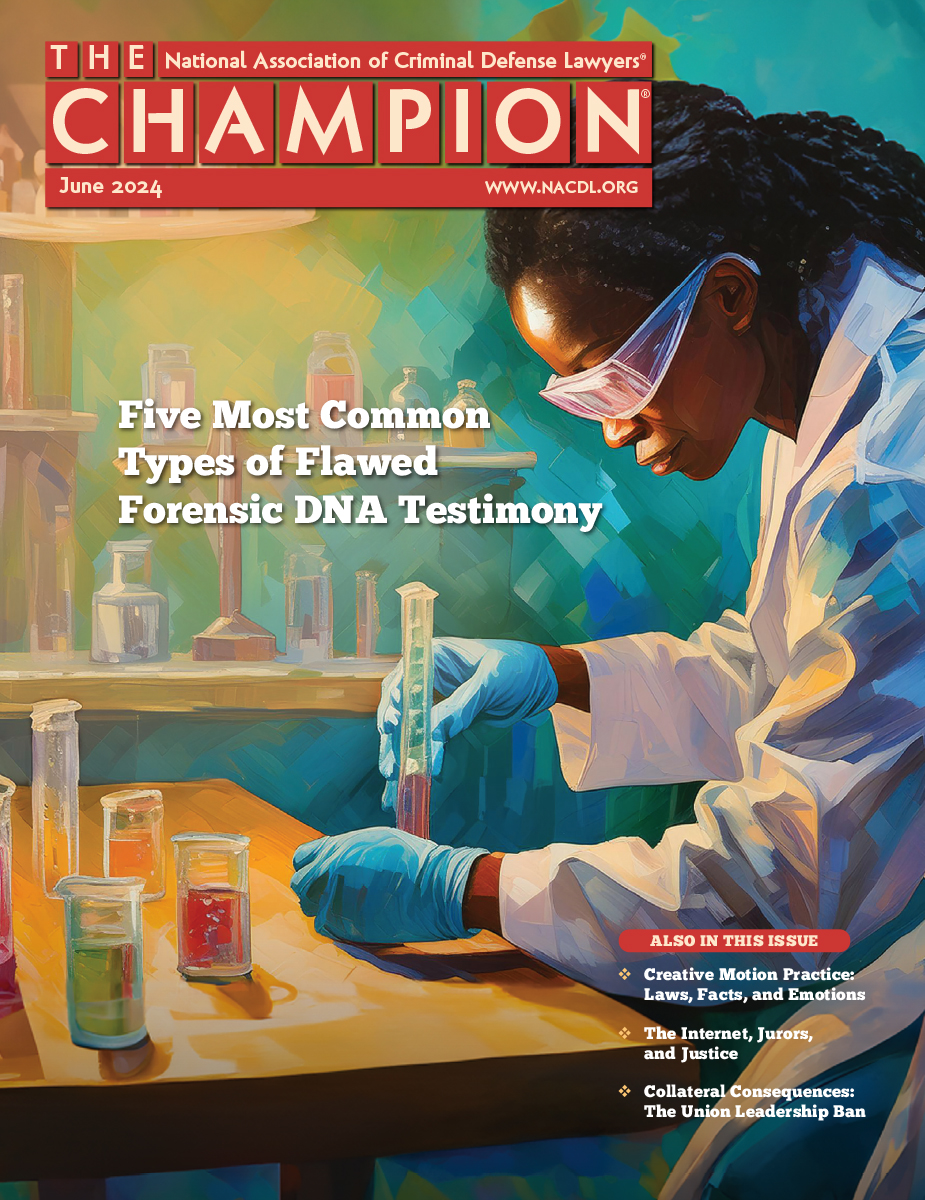June 2024

What are the five most common types of flawed forensic DNA testimony? Find out in this issue of The Champion.
Articles in this Issue
-
Affiliate News
What events are NACDL affiliates hosting this month? Find out here.
-
Alleviating Collateral Consequences: Seeking Relief from the Employment Ban Under 29 U.S.C. § 504(a)
Mariah Conner flourished in her factory job after leaving prison, and union members elected her vice president of the local union. But Conner did not know about 29 U.S.C. § 504(a), the federal employment ban for labor union leadership applicable to people with prior convictions like hers. Here is the good news: Individuals disqualified from union service may petition for an exemption. Federal defender Benton Martin explains how the process works and identifies potential pitfalls.
-
Book Review: Pleading Out by Dan Canon
This month Robert Sanger reviews Pleading Out: How Plea Bargaining Creates a Permanent Criminal Class by Dan Canon.
-
Book Review: Profit and Punishment by Tony Messenger
This month Cara Wieneke reviews Profit and Punishment: How America Criminalizes the Poor in the Name of Justice by Tony Messenger.
-
Book Review: Punishment Without Trial by Carissa Byrne Hessick
This month Elizabeth Ramsey reviews Punishment Without Trial: Why Plea Bargaining Is a Bad Deal by Carissa Byrne Hessick.
-
Creative Motion Practice: Who, What, Where, When, and Why
Steven Epstein urges defense attorneys to be creative when planning, writing, and editing their motions. He identifies the trilogy that is fundamental to motion practice: the law, the facts, and the emotions that drive decisions.
-
Diversity Committee Announces Its 2024 Fellows
Prya Murad introduces the 2024 class of Summer Law Fellows selected by the Diversity Committee.
-
Five Most Common Types of Flawed Forensic DNA Testimony
Forensic DNA expert Tiffany Roy describes five common types of flawed forensic DNA testimony she encounters when she reviews transcripts of analysts’ testimony.
-
From the President: Generative AI for Criminal Defense Lawyers: Myths, Risks, and Benefits
Lawyers must always keep their defense hats on to help identify the biases Generative AI may support and to implement creative safeguards to ensure the presumption of innocence is maintained in courtrooms.
-
Perspective: Liberatory Love: Transforming the Legal Profession
The notion of liberatory love, which is rooted in empathy, understanding, and a commitment to social justice, holds the power to transform the way attorneys approach their work.
-
The Influence of the Internet on Justice, Especially in High-Profile Cases — Including Trump Trials
Judges repeatedly tell jurors not to search for case-relevant information on the internet. Some jurors are not complying, and the internet is playing an increasing and proactive role in courtrooms. While the internet is a formidable repository for information, it is also a source of misinformation. The authors offer suggestions to keep the internet from subverting justice.
